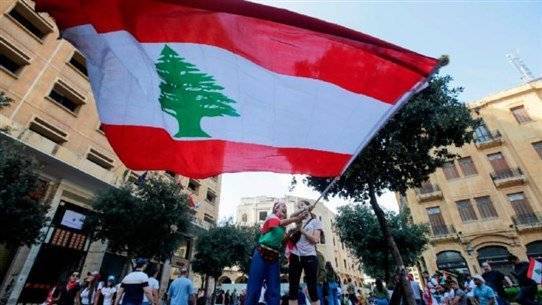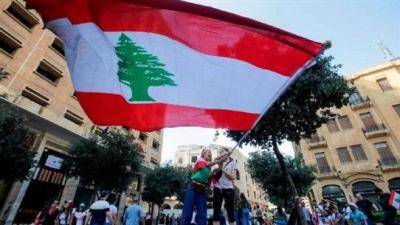Lebanon has traversed four political milestones in recent weeks following the parliamentary elections, all of which confirmed what is already known to those familiar with the depths of the country's crisis. In light of an effective occupation that the international community insists on ignoring, according to an electoral law tailored to this occupation, and under the dominance of its weapons and security over state institutions, it was impossible for the outcome to be different from what we have seen and are witnessing.
Here, I must clarify that this does not mean that the Lebanese willingly supported the continuation of the occupation… on the contrary, the Lebanese community has shown a dynamic that deserves appreciation in light of the hostile external conditions against it. However, on the other hand, the Lebanese - almost all of them - bear the responsibility for their sectarian and instinctual insularity and their excessive trust in "traditional" and "change-oriented" leaders who have proven - and continue to prove - their lack of vision, irresponsibility, and refusal to relinquish their petty calculations and self-destructive squabbles. Yes, the majority of Lebanese people, the deprived, hungry, frustrated, and resentful, know from the beginning "what they do not want"… yet despite all the frustrations and pains they have endured, they have failed to agree on "what they want" in the form of practical, unifying alternatives capable of changing the equations.
Four milestones have been crossed by Lebanese politicians after the "elections of non-elections" in an era imposed by the occupation, which controlled the policies in exchange for providing personal, partisan, and sectarian appeasements and fabricating fictitious leaderships through promises of key positions and ministerial appointments.
The first milestone was the election of the Speaker of Parliament, which is the first obligation after any new parliament is elected. Here, despite the confusion surrounding the image, it later became apparent. This position is exclusively assigned to the Shiite sect. The "Shiite duo," composed of "Hezbollah" and "Amal Movement," was keen on monopolizing all 27 Shiite seats at any cost, and this was achieved, as there are no Shiite representatives in the parliament outside the blocks of this "duo." Thus, with Nabih Berri as the candidate for the position backed by "Hezbollah," there was no competitor… It would have been more appropriate to announce his victory by acclamation given the absence of any alternative candidate.
The second milestone, related to the election of the Deputy Speaker of the Council, was a much more serious test in terms of sorting out political positions, despite the modest importance of the position. This role is reserved for the Orthodox sect, which does not lead the political party train in the "Christian camp," nor do they produce candidates for the presidential position. The Orthodox are also geographically spread across several regions in Lebanon, such that their population density can only influence a few areas, such as the Koura district in the north of the country. Also, the Orthodox have long surpassed the "feudal" state and "family political tribalism" that still exists among the largest Christian sects, namely the Maronites, in addition to the fact that the Orthodox have always been at the forefront of movements for sectarian openness, national identity, and ideological plurality both in Lebanon and the Arab region.
In the Orthodox "battle," the joy of the hoped-for "victory" diminished when the ranks of the opposition forces dispersed, allowing the "Shiite duo" and the "Free Patriotic Movement" (affiliated with President Michel Aoun) to secure the victory of their candidate, former Minister Elias Bou Saab, over his opponent supported by the opposition and change forces, Professor Ghassan Skaff, albeit by a narrow margin.
The opposition and change-seekers faced another setback at the third milestone, which was the election of specialized parliamentary committees, where the "Shiite duo" and its ally "Aounist" secured dominance over the most important committees, facing the fragmentation of the opposing front which allowed their candidates to grab mere crumbs from the table.
Finally, the train of setbacks and disappointment reached its fourth stop, represented by the ministerial consultations. Behind the scenes, it was clear that international pressure was being exerted to re-assign current Prime Minister Najib Mikati. These pressures, whose success highlighted the opposition's fragility and divisions, appear logical... At the forefront of the justifications is that Mikati is now holding the reins in the absence of any competing Sunni Muslim leadership after the retreat of President Saad Hariri and his urging of his supporters to boycott elections… even leading some of his close associates to combat former allies who sought to salvage whatever could be saved instead of handing the country over to "Hezbollah" and the Aounists.
Additionally, what enhanced Mikati's chances for re-assignment is that he is closely connected with several influential international capitals regarding Lebanon, such as Paris and Washington, in addition to a number of Arab capitals. Moreover, he is an experienced man who knows how to navigate circumstances and maintain a "hair’s breadth" relationship with various players both locally and internationally.
However, perhaps the most important and dangerous consideration in some people's inclination towards the option of re-assigning Mikati is the desire to avoid the unknown. This is because President Michel Aoun's presidency is in its final months, and there does not seem to be in sight - amidst the accumulating international clouds - any indication of a smooth election of a replacement for Aoun. This means that Mikati's potential upcoming government could manage the country in the event of a presidential vacuum. This could be the best of the possible solutions in a country where the political cost of its collapse is much greater than the cost of rebuilding it, especially since the region is on the brink of a new map-drawing phase.




